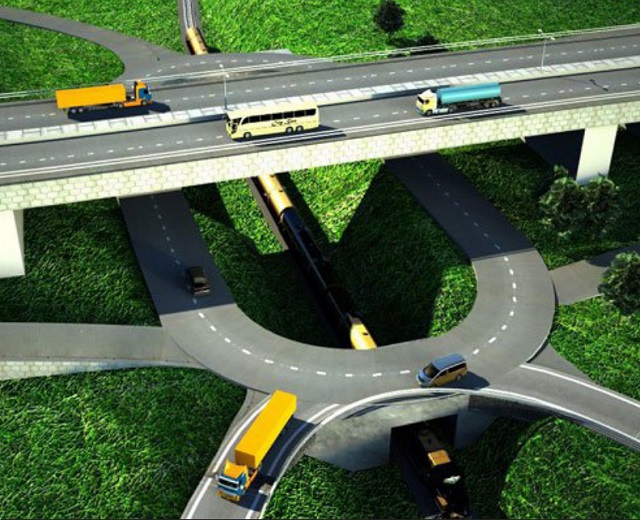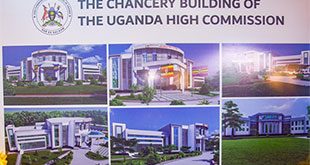
Boost for Northern Corridor as AfDB approved US$1.4 million last month for feasibility study of the multinational Kenya-Uganda Expressway project
Jinja, Uganda | THE INDEPENDENT | The plan to construct a super highway connecting Uganda and Kenya could become a reality, following the financial intervention of the African Development Bank (AfDB). The Bank, through its New Partnership for Africa’s Development and Infrastructure Project Preparation Facility (NEPAD-IPPF), has approved a $1.4 million grant to the East African Community for the feasibility study of the Multinational expressway.
It is planned to connect the two countries, from Kisumu through Kisian, Busitema, and Busia, as part of the Northern Corridor that runs from Mombasa in Kenya to Burundi, the Democratic Republic of Congo, Rwanda, and Uganda. Currently, the road system is made of two-lane single-carriageway bitumen sections that are heavily congested due to increased traffic volumes for both cargo and passengers, which leads to delays and higher costs of doing business.
The feasibility study will determine the economic viability of upgrading the existing multinational road sections from single carriageway to expressway standards, is expected to “revolutionise” the movement of goods and services between Nairobi to Kampala, and beyond,” he said. The EAC Deputy Secretary General in charge of Infrastructure, Andrea Aguer Ariik Malueth, said that the feasibility study will result in the development of a smart corridor beyond the traditional concept of transport corridor by incorporating digital technology as well as the social and economic needs of the citizens of the EAC as its core elements.
According to Ariik, to date, eight multinational road projects have been successfully prepared for bankability under the EAC Multinational Road Development Programme with five of them having proceeded to investment. He, however, said that the regional transport infrastructure in the EAC is still poorly developed due to missing links on cross-border transport corridors, and hard and soft infrastructure on roads, railways, air transport, and inland waterways.
“Up to 80 percent of projects fail to take off due to inadequate preparation, specifically insufficient feasibility studies to determine their economic financial, environmental, social and technical viability.” “Therefore, the grants provided by NEPAD-IPPF to the EAC have enabled it to prepare high-quality and bankable regional infrastructure projects that are able to attract public and private sector financing,” said Ariik.
On his part, Epifanio Carvarlho de Melo, the AfDB Acting Manager for Infrastructure and Partnerships Division, said AfDB will continue to work closely with the EAC to ensure the success of vital projects that are poised to transform the economy of the region. Over the last 20 years, the EAC has seen the construction of four multinational roads, namely: Arusha-Namanga-Athi River, Arusha-Holili/Taveta-Voi, Malindi-Mombasa-Lunga Lunga/Tanga-Bagamoyo and Nyakanazi-Kasulu-Manyovu/Rumonge-Rutunga-Bujumbura roads.
Projects which have undergone feasibility studies and detailed designs so far are the Masaka-Mutukula/Mutukula-Kyaka and Bugene-Kasulo-Kumnazi road, the Lusahunga-Rusumo/Kayonza-Kigali road and the Uvinza-Kanyani and Uvinza-Mpanda/Gisuru-Rusengo and Makebuko-Bugarama roads. The EAC goal now is to carry out feasibility studies on the said road, which is a link within the Northern Corridor, one of the eight roads comprising the Trans Africa Highways.
The studies will be carried out in one package to determine the economic feasibility and financial viability of developing the project components (roads and border posts) that connect the two countries to the rest of East Africa and beyond.
****
URN
 The Independent Uganda: You get the Truth we Pay the Price
The Independent Uganda: You get the Truth we Pay the Price




It will ease transport from Uganda to Kenya.